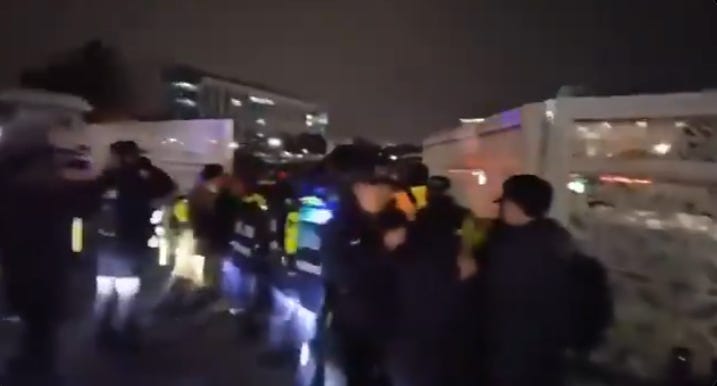Analysis: South Korea martial law declaration increases economic risk
Immediate focus on the political impact of the declaration of martial law misses the substantial economic impact that will potentially follow.
Event or Trend: On 3 December 2024, South Korean President Yoon Suk Yeol declared emergency martial law, citing threats from pro-North Korean elements and accusing the opposition of anti-state activities. At 1.00am, the National Assembly voted unanimously against the declaration.
Significance: The imposition of martial law in South Korea is a significant development with profound implications for the nation's political stability and economic health. Historically, such measures have led to widespread civil unrest and human rights abuses, as seen during the Gwangju Uprising in 1980. The current declaration has already sparked immediate opposition from political leaders and is likely to incite major protests. This escalation of domestic tension comes at a time when South Korea's economy is grappling with challenges, including youth unemployment, high household debt, increased concerns about the country's technological competitiveness, and concerns regarding the impact of Trump’s tariff cuts. The convergence of political unrest and economic strain is expected to substantially elevate South Korea's political risk profile, potentially deterring foreign investment and impacting its standing in global markets.
Analysis: President Yoon's declaration of martial law was prompted by escalating tensions with the opposition Democratic Party, which controls the parliament. The opposition has been accused of sympathizing with North Korea and engaging in activities that paralyze the government. Additionally, there have been contentious issues such as the opposition's attempts to impeach top prosecutors and disputes over the government's budget bill. These political frictions have culminated in the president's decision to impose martial law, aiming to "eradicate pro-North Korean forces and protect the constitutional democratic order."
The declaration of martial law is anticipated to trigger significant protests across South Korea. Historical precedents, such as the Gwangju Uprising, demonstrate that martial law can lead to severe civil unrest and human rights violations. The current political climate suggests a similar trajectory, with opposition leaders condemning the move as "illegal and unconstitutional" and vowing to mobilize public resistance.
A declaration of emergency martial law prohibits association and demonstration. The declaration now goes against a parliamentary vote. Ensuing protests will start immediately and are unlikely to end until Yoon is removed from office. South Korea has a robust history of democracy protests, underscored by a politically active and vigilant citizenry.
This legacy was prominently displayed during the impeachment of President Park Geun-hye in 2017, following revelations of corruption and abuse of power involving her confidant, Choi Soon-sil. Massive protests, collectively known as the Candlelight Movement, brought millions of South Koreans to the streets in one of the largest peaceful demonstrations in the country's history. These protests showcased South Korea's mature democratic culture, where public discontent with leadership failures translated into organized, sustained calls for accountability.
The movement's success in leading to Park's impeachment and eventual conviction reinforced the South Korean public's belief in their capacity to defend democratic values, making large-scale protests a potent and recurring response to perceived governmental overreach or injustice. Notably, rumors also circulated on the potential for Park to declare martial law prior to her removal.
The ensuing instability is likely to erode investor confidence, leading to capital outflows and a depreciation of the South Korean won. The stock market has already reacted negatively, with s fluctuations in financial markets, and statements from key trade partners.
Diplomats should monitor indicators such as the scale and intensity of public protests, responses from international human rights organizations, fluctuations in financial markets, and statements from key trade partners. These factors will provide insights into the evolving political risk and its potential impact on economic and diplomatic relations. Embassies will need to issue immediate political demonstration warnings and foreign travel advisories.
Outlook: In the immediate term, South Korea will experience widespread protests and economic volatility, with potential international condemnation affecting trade relations. If democratic processes are not restored within a short timeframe, South Korea will face significant shifts in its global alliances and economic standing, potentially leading to isolation from key international partnerships.



